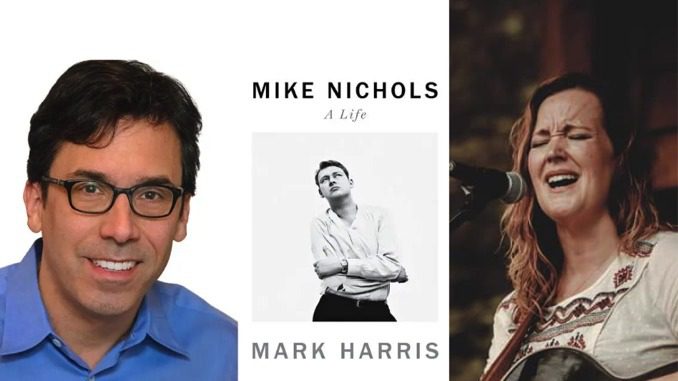The summer heat is just about impossible to beat right now, but July delivered a slate of exhilarating releases to soundtrack us all sweating through the dog days. Among the past month’s latest and greatest new albums is Beyoncé’s Renaissance, the kind of music that will draw even the shyest wallflower out onto the dance floor. Meanwhile, black midi and Steve Lacy continue to advance their singular avant-prog and neo-soul stylings, respectively, on their latest albums. It was a blockbuster month, and if you ask us, these 10 albums shined the brightest.
Listen to our Best Albums of July 2022 playlist on Spotify here.
Beyoncé: Renaissance
Renaissance is an appropriate title for the dance-forward release from R&B superstar Beyoncé as she finally takes a step forward and explores dance music in all of its forms. At its core, the album is a touching love letter to Black gay culture as a tribute to the singer’s uncle Jonny. Beyoncé follows the trend of experimenting far outside of her realm, lending her silky vocals and sexy whispers to jittery Memphis rap samples, dancehall drums and grandiose diva house beats. Renaissance doesn’t take itself too seriously, allowing the goddess herself to have a bit of fun and create infectious dance music. —Jade Gomez
black midi: Hellfire
It’s difficult to describe exactly the way listening to black midi makes me feel. It’s even trickier to describe exactly what they sound like in general. Despite taking influence from progressive, avant-garde acts like Captain Beefheart, Primus and Frank Zappa, as well as classical sources like Tchaikovsky and Messiaen, the band has been lumped in with the popular canon of post-punk or, more dreadfully, the “Post-Brexit” wave. In truth, since the band made their breakthrough with the instantly iconic Schlagenheim, black midi has been on the forefront of some of the most dynamic, cutting-edge virtuosity in rock music, leaning heavier into their jazz influences on last year’s thrilling Cavalcade without losing a shred of their unique, energetic touch. However, where Cavalcade saw the band stripping back a bit and touching smoother, more atmospheric notes with songs like “Marlene Dietrich” and “Diamond Stuff,” Hellfire finds the group once again dialing up their hypnotic energy, pairing dizzying instrumentals with apocalyptic imagery for a result that sounds at times like you’ve found yourself in the middle of a Faustian Looney Tunes segment. —Jason Friedman
Chat Pile: God’s Country
Chat Pile’s debut LP ends with a nine-minute narrative that sounds outlandish on paper: A man is tormented by a nightmare figure resembling McDonald’s mascot Grimace, to the point of suicide. The surreally macabre premise is heightened all the more by the track’s name: “grimace_smoking_weed.jpeg,” a title calling to mind a tossed-off joke file name or online message to a friend in lieu of an actual image. But the song itself is arguably the most chilling selection on an already-bleak record, in no small part due to vocalist Raygun Busch’s tortured contributions that sound an inch from self-destructive action at a moment’s notice—even before erupting into agonized shrieks in protest of the “purple man” who haunts him. When the track’s back half stretches into a sludgy death march, his lyrics become all the more direct, culminating in Busch crying out, “I don’t wanna be alive anymore / Do you?” The pressure of the track proves to be so suffocating that even Busch’s final scream of Grimace’s name to close the album becomes bloodcurdling, where a more ironic approach would have rendered the whole thing high camp. “Grimace_smoking_weed.jpeg” is, in microcosm, emblematic of the tricky balance Chat Pile evokes with visceral ugliness throughout God’s Country. The absurdity and paradox of capitalist landscapes are laid bare, depicted with just as much horror as the band believes they ought to merit. Just as characters for fast-food marketing and toys become taunting reminders of the soul-crushing nature of post-industrialization, so, too, does the illogical nature of houselessness in a nation with buildings to spare, and the pursuit of wealth above personal fulfillment. —Natalie Marlin
Florist: Florist
Florist is a special record that stands apart from Emily Alone. The former is denser, clocking in at a mountainous 19 tracks, and finds Emily Sprague picking up the pieces that inspired the latter. It’s a (mostly) joyful portrait of friendship, family and affection, told from both first- and second-person points of view. It’s not the first folk record to flirt with almost two-dozen songs this year, as 2022 has already seen the release of Big Thief’s heavy, sprawling and critically revered Dragon New Warm Mountain I Believe in You. But Florist’s contribution is much different and, in some ways, better. Florist’s arrival finds the band tinkering with new horns, blooming synths, roving percussion and sampling. The atmospheric landscapes behind Sprague’s guitar on previous albums are now filled up. —Matt Mitchell
Momma: Household Name
Like the American answer to Wet Leg, here come Momma to make themselves a Household Name. The Brooklyn-based band, led by founding vocalist/guitarist duo Etta Friedman and Allegra Weingarten, have already shared stages with those buzzy British peers, and their hook-laden indie-rock sounds are equally irresistible. In a way, Household Name invites this kind of comparison: Produced by Momma multi-instrumentalist Aron Kobayashi Ritch and mastered by Grammy-winning engineer Emily Lazar (The Killers, Maggie Rogers), the album is structured to reflect “the rise and fall of the rock star,” as the band step into the arena and assert their burgeoning position as part of the genre’s history. They emulate The Breeders and Nirvana, shout out Pavement on the exhilarating “Speeding 72,” and nod to Liz Phair love song “Nashville” on “Lucky,” revealing themselves as adept-beyond-their-years students of rock ‘n’ roll, a la Horsegirl. Get used to hearing Momma’s Household Name. —Scott Russell
Pool Kids: Pool Kids
Tallahassee, Florida, rockers Pool Kids made a wave-making return via their self-titled second album, the follow-up to 2018’s acclaimed Music to Practice Safe Sex to. Founding vocalist/multi-instrumentalist Christine Goodwyne and drummer Caden Clinton, who wrote the band’s debut LP in its entirety, are now joined by bassist Nicolette Alvarez and guitarist Andy Anaya, further focusing and amplifying their vision as a four-piece. Goodwyne’s always relatable, often funny lyricism and expressive vocals are the soft center of Pool Kids’ sound, surrounded by layers of dynamic math-rock and guitar pop that are coolly precise, yet never sterile or alienating. Pool Kids welcomes you in and empowers you to move towards emotional catharsis, especially on standouts like “That’s Physics, Baby” and “I Hope You’re Right,” which are practically aglow with sonic polish and unpretentious humanity. —Scott Russell
Rico Nasty: Las Ruinas
Rico Nasty’s slow pivot from punk-rap to bubbly hyperpop is not unexpected, and her 2020 debut Nightmare Vacation laid that groundwork with the electric single “IPHONE.” Two years later, Rico completely reinvents herself with the release of Las Ruinas. Dizzying electronic beats and eerie, horror-inspired production open the doors to Rico’s colorful musical circus. Her iconic raspy flow and delicate croon take up equal space on the project. Whether channeling drum-and-bass euphoria on “Phuckin Lady” or acoustic emo pain on “Easy,” Rico continues to shapeshift and carve her own path as one of the most innovative rap artists of the past few years. —Jade Gomez
Steve Lacy: Gemini Rights
Steve Lacy first gained recognition as one of the main producers on The Internet’s acclaimed third album Ego Death. Lacy is a prodigy in every sense of the word, producing tracks only on an iPhone and working with some of the biggest names in music before graduating high school. Three years on from his solo debut Apollo XXI, Lacy expands on his guitar-forward palette for Gemini Rights, bringing in layers upon layers of vocal harmonies, warbled basslines and synths. Much like his debut, Lacy refuses to settle down with one specific sound, priding himself on being born in an era where everyone is stylistically omnivorous. Each track is full of Lacy’s dry, millennial wit and coated in his tender falsetto as he pays homage to the tender ballads of Stevie Wonder with the snark of Thundercat. On Gemini Rights, Lacy is ready to take his rightful place as one of his generation’s most innovative figures. —Jade Gomez
Twen: One Stop Shop
There might as well be an ocean of time separating Twen, i.e., indie duo Jane Fitzsimmons and Ian Jones, from their 2019 debut album Awestruck. The intervening years found the band leaning harder than ever into their DIY ethos, to the point that their aptly titled sophomore LP, One Stop Shop, finds them “writing, producing, mixing, directing, designing, booking and managing their own project,” per their website. Rejecting (or at least operating outside of) the music-industry apparatus is a lightning-rod topic lately, lending a particular timeliness to Twen’s new set of songs. But what matters most, as ever, is the ear test, and Fitzsimmons and Jones have had the goods since they first arrived on radar. One Stop Shop is a monument to honesty that finds Twen channeling their gift for irresistible melody through a prism of pop, rock and psychedelia, designed to resist being boxed in or explained away. —Scott Russell
Working Men’s Club: Fear Fear
Working Men’s Club simultaneously embody the terror that the world will implode at any second while celebrating the fact that we’ve made it to another day in this strange dystopia that we live in on their latest album, Fear Fear. A dark-wave record that isn’t afraid to dance on thin ice, it examines the precarious position we’re in with both dread and jubilation. The zapping, Kraftwerk-esque synthesizers and deadpan vocal delivery have an ‘80s retro-futuristic varnish. Deeming it “a record made for agitating and dancing, for heart and soul, for here, now, and tomorrow,” Working Men’s Club fuses industrial beats with the human tendency to grapple with the existential question “Who are we and where are we headed?” —Samantha Sullivan
Listen to our Best Albums of July 2022 playlist on Spotify here.




